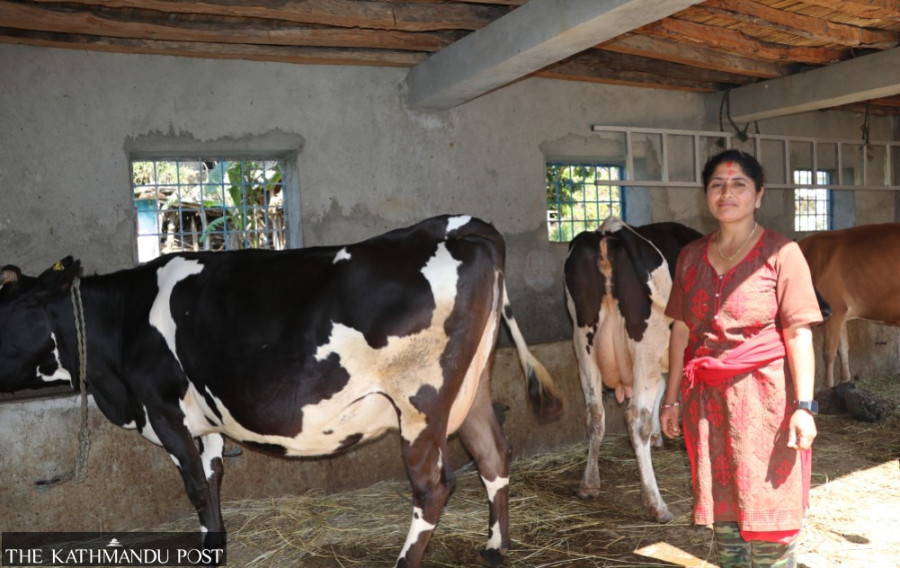Editorial
The Gulmi way
The success of women entrepreneurs in the district offers lessons for the rest of the country.
While news on Nepali economy and labour force is most negative these days, women entrepreneurs are emerging as a welcome exception. In the 2011-12 agricultural census report of the National Statistics Office (formerly Central Bureau of Statistics), only 19 percent of adult women headed their homes and were the family’s main earners. Fast-forward to the recent census, the figure has increased to 32.4 percent. According to the agriculture census report of the National Statistics Office, this rise can be attributed to the sluggish economy and a large number of men migrating abroad in search of work.
Thousands of women have now become the main breadwinners in their families. Satyawati Rural Municipality of Gulmi district stands out in this respect. Many women there are not only making good money but also convincing their husbands to give up their backbreaking work abroad to join them in their businesses back home. Together, they are involved in agriculture, livestock rearing, coffee farming, dairy production, poultry and apiary. One family there saves more than Rs50,000 a month from vegetable farming alone. Their products have gained a market in their village, district and neighbouring districts as well as in foreign lands.
Similarly, in other parts of the country, women entrepreneurs are taking centre stage in such entrepreneurial initiatives. As per the Federation of Women Entrepreneurs Association Nepal, there are more than 500,000 women entrepreneurs in Nepal. Visit any homestay in Nepal, and you will most likely see women manage them. They are also involved in other micro, small and medium enterprises, including knitting, pickle making, handicrafts, pottery and nurseries.
The government has introduced an integrated subsidised loan scheme for their support. However, challenges persist for women. One big hurdle is society’s refusal to see women as entrepreneurs. A paper titled Policy Priorities published by UKaid reveals that even though banks are mandated to give loans to women without collateral, they are often hesitant to do so. This stems from the belief that women can’t lead businesses. Women face further difficulties as they don’t get support from their families to focus entirely on their startups while also having to juggle household chores and family.
The examples from places like Gulmi, however, are optimistic. Seeing the likelihood of profit, husbands supported their wives, and the women even received technical help from agricultural experts and local-level technicians. The technicians there also advise women and their families on how to solve disease-related problems in agriculture. The collective effort of people in Gulmi has led to the production of countless women entrepreneurs. In order to flourish, women entrepreneurs across Nepal need the same level of support.
More support for women interested in entrepreneurship of any kind could even, eventually, help lift the dark clouds looming over the Nepali economy. Society will benefit too. Families will reunite as migrated husbands return home and give women a hand in their businesses. Women-led businesses will give the concerned women greater autonomy over their lives and decisions. As remittances aren’t a sustainable solution to the country’s economic woes, there is no alternative to prioritising domestic growth. For this, policymakers should focus on supporting women entrepreneurs, encouraging them to do more by removing financial hurdles obstructing their way. We should make the most of this rare and exciting window of opportunity to revive the national economy.




 13.12°C Kathmandu
13.12°C Kathmandu














